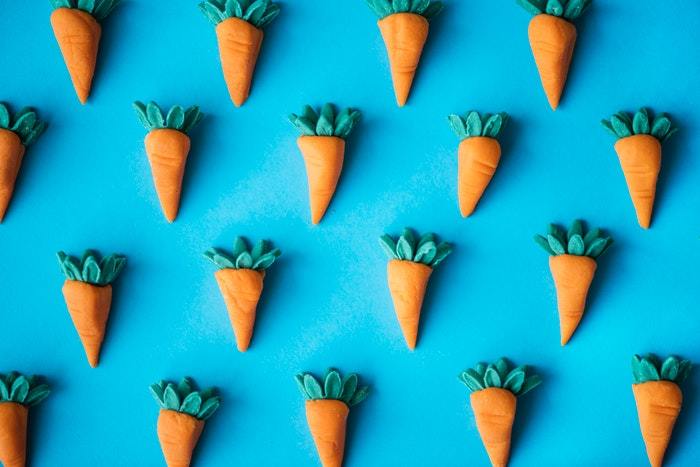The phytonutrients are a class of substances that are found in plant foods, are not essential nutrients yet appear to help promote health and reduce risk of cancer, heart disease and other conditions.
Phytonutrients, also known as phytochemicals, are responsible for providing plants with their colours such as red tomatoes and the distinctive aromas such as garlic.
They naturally occur in plants and protect them from environmental factors such as sunlight and plant-eating insects.
For humans, we too can benefit from phytochemicals foods that can be found in things such as fruits, vegetables, legumes, whole grains, herbs and seeds.
As they do not provide energy or nutrition for bodybuilding, they are not classified as essential nutrients, however they can still play a key role in the body by serving as powerful antioxidants that can help reduce blood pressure and cholesterol, prevent cataracts, reduce menopause symptoms and osteoporosis.
To date, there are thousands of known phytochemicals, yet most foods only contain a small number of these and even fewer in higher doses.

A Sampling of Phytochemicals Foods
Below you will find a sample of the key phytochemicals foods, their classifications, ideal sources and possible health benefits.
Beta glucan
Food sources: Oat bran, rolled oats, oat flour.
Possible health benefits: May reduce risk of coronary heart disease.
Capsaicin
Food sources: Hot peppers.
Possible health benefits: May reduce risk of fatal clotting in heart disease.
Carotenoids
Beta-carotene
Food sources: Orange fruits and vegetables, dark green vegetables.
Possible health benefits: May help reduce risk of many cancers and strengthen immune system.
Lutein & zeaxanthin
Food sources: Pumpkin, summer squash, corn, eggs, broccoli, dark green leafy vegetables.
Possible health benefits: May reduce risk of age related eye disorders by protecting the retina from harmful UV radiation and neutralizing free radicals.
Lycopene
Food sources: Tomatoes, watermelon, red grapefruit and peppers.
Possible health benefits: May help reduce risk of prostate and other cancers.
Curcumin
Food sources: Turmeric, a spice.
Possible health benefits: May inhibit enzymes that activate carcinogens.
Falvonoids and other phenols e.g. Anthocyanin, ellagic acid, resveratrol
Food sources: Fruits, whole grains, nuts, chocolate, black or green tea, potato, red cabbage, beets, peppers, onions, soy, red wine.
Possible health benefits: May act as antioxidants, decrease inflammation, reduce plaque build up in arteries, increase HDL cholesterol levels, deactivate carcinogens and inhibit cancer development.
Indoles
Food sources: Cruciferous vegetables.
Possible health benefits: May stimulate enzymes that make the hormone oestrogen less effective, possibly reducing breast cancer risk.
Isothiocyanates
Food sources: Broccoli, kale and other cruciferous vegetables.
Possible health benefits: May help stimulate protective enzymes that detoxify carcinogens, bolstering the body’s natural ability to ward off cancer.
Monoterpenes
Food sources: Citrus (fruits, juices, peels, oils).
Possible health benefits: May act as antioxidant and increase production of enzymes that may help the body dispose of carcinogens.
Organosulfur compounds
Food sources: Onions, garlic, chives, leeks.
Possible health benefits: May block the action of cancer-causing chemicals, may offer heart protection by decreasing production of cholesterol by the liver.
Phytic Acid
Food sources: Whole grains.
Possible health benefits: May prevent free radical formation by binding to minerals and thereby reduce cancer risk.
Phytoestrogens
Isofalvones
Food sources: Soy foods and other legumes.
Possible health benefits: May protect against heart disease by lowering blood cholesterol, may lower risk of breast, ovarian, and other cancers by blocking the action of the hormone oestrogen.
Lignans
Food sources: Flaxseed, whole grains.
Possible health benefits: Exhibits oestrogen-blocking activity and may lower risk of breast, ovarian, colon and prostate cancer.
Saponins
Food sources: Sprouts, potatoes, green vegetables, tomatoes, nuts, whole grains, soy foods, legumes.
Possible health benefits: May strengthen the immune system and interfere with DNA replication, preventing cancer cells from multiplying.
Tannins
Food sources: Grapes, red and white wine, tea.
Possible health benefits: Act as antioxidants, may inhibit enzymes that activate carcinogens.
Phytochemicals Benefits
There are various mechanisms through which phytochemicals will act:
- Antioxidant properties (protecting against harmful cell damage).
- Anti oestrogen properties
- Anti cancer properties (preventing initiation and promotion of cancer).
These actions are then carried out by direct and indirect mechanisms:
- Directly – they may directly act to inhibit enzymes that activate carcinogens or to induce enzymes that detoxify carcinogens.
- Indirectly – they may indirectly act by stimulating the immune response or scavenging free radicals.
Optimising Phytochemicals Foods in an Eating Plan
A well balanced diet based on whole foods coming from ample amounts of fruit, vegetables, legumes, whole grains, herbs and seeds should provide the body with sufficient phytochemicals.
The whole food approach is likely to be more effective than supplementation, as we know the absorption, metabolism and distribution of some nutrients are dependent upon the presence of other nutrients.
The same applies to phytochemicals, as taking individual amounts may not provide the same functions or protection as a combination from various sources.
Become an elite-level nutrition coach
My team and I have just finished up creating a brand new online training workshop called 'The Proven Nutrition Strategies of Elite Trainers.'
Best part? It costs you nothing. This is your official invite - all you need to do to attend is click here to register.
This free nutrition course is for you if you want to finally learn the best nutrition protocols and evidenced-based strategies to help your clients achieve life-changing results.
Join me and I’ll walk you through the exact steps you need to take in order to get incredible client results, boost your confidence and build your business with proven nutrition coaching strategies.

